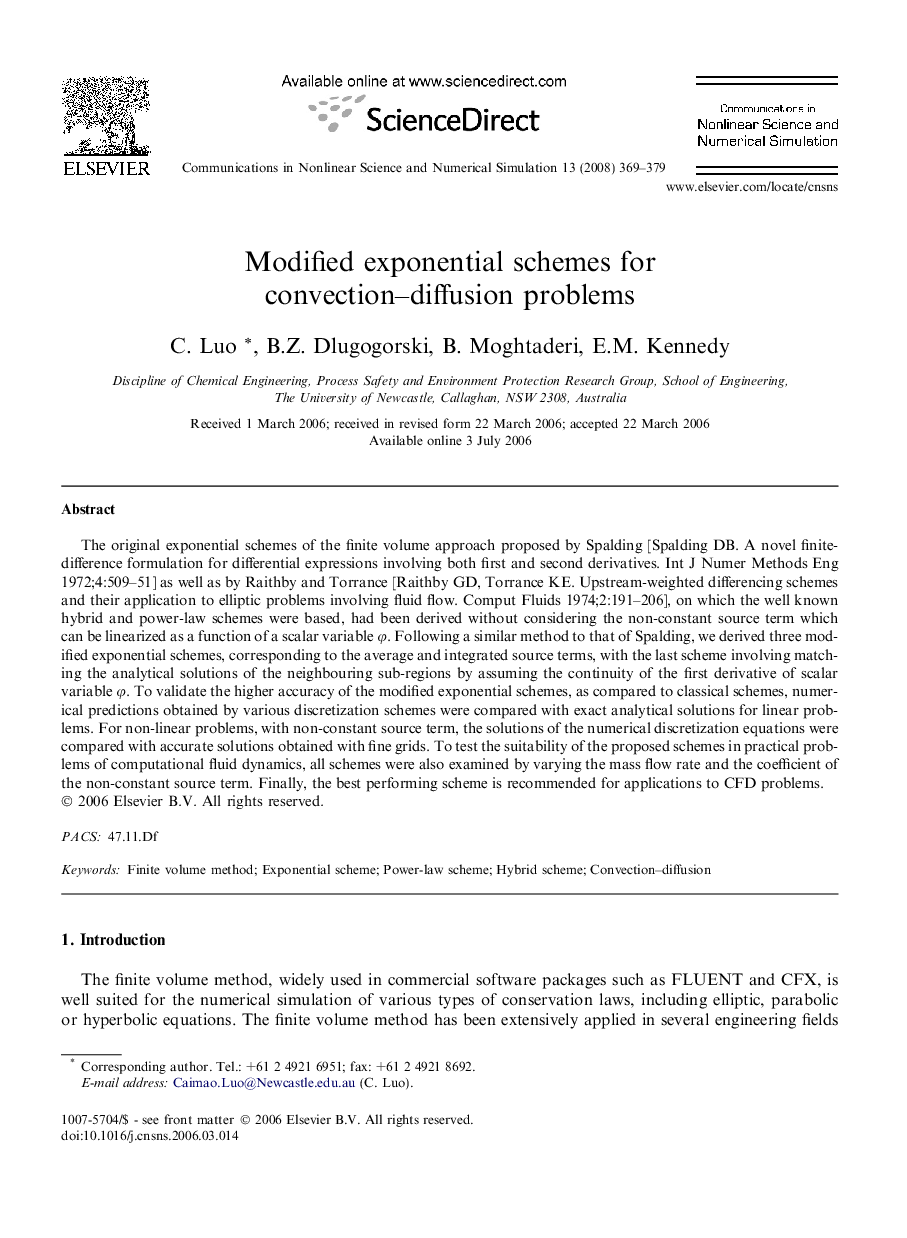| Article ID | Journal | Published Year | Pages | File Type |
|---|---|---|---|---|
| 759897 | Communications in Nonlinear Science and Numerical Simulation | 2008 | 11 Pages |
The original exponential schemes of the finite volume approach proposed by Spalding [Spalding DB. A novel finite-difference formulation for differential expressions involving both first and second derivatives. Int J Numer Methods Eng 1972;4:509–51] as well as by Raithby and Torrance [Raithby GD, Torrance KE. Upstream-weighted differencing schemes and their application to elliptic problems involving fluid flow. Comput Fluids 1974;2:191–206], on which the well known hybrid and power-law schemes were based, had been derived without considering the non-constant source term which can be linearized as a function of a scalar variable ϕ. Following a similar method to that of Spalding, we derived three modified exponential schemes, corresponding to the average and integrated source terms, with the last scheme involving matching the analytical solutions of the neighbouring sub-regions by assuming the continuity of the first derivative of scalar variable ϕ. To validate the higher accuracy of the modified exponential schemes, as compared to classical schemes, numerical predictions obtained by various discretization schemes were compared with exact analytical solutions for linear problems. For non-linear problems, with non-constant source term, the solutions of the numerical discretization equations were compared with accurate solutions obtained with fine grids. To test the suitability of the proposed schemes in practical problems of computational fluid dynamics, all schemes were also examined by varying the mass flow rate and the coefficient of the non-constant source term. Finally, the best performing scheme is recommended for applications to CFD problems.
